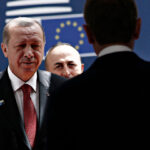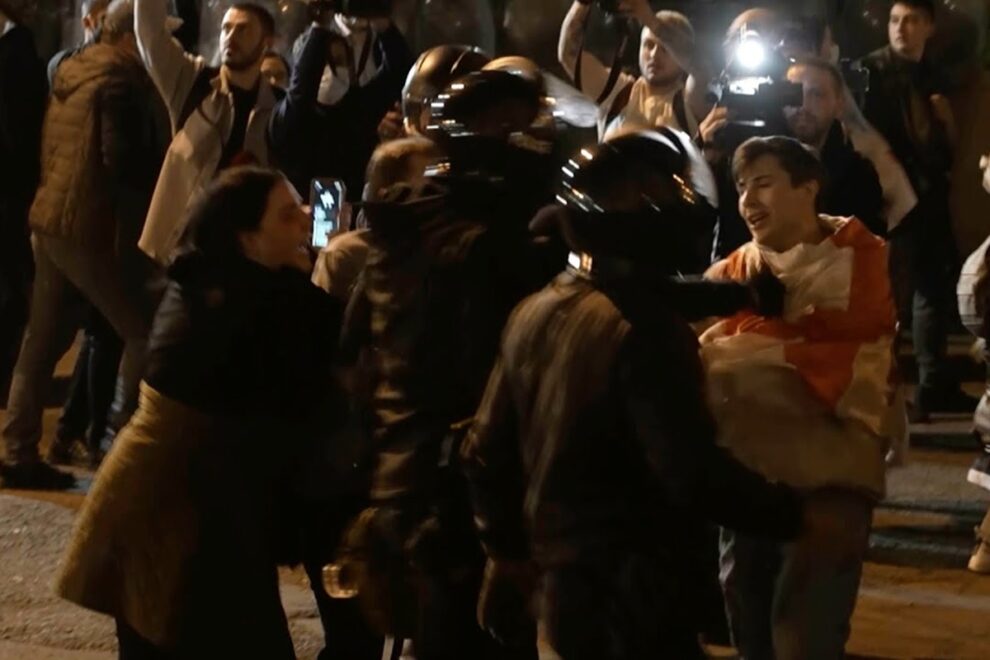A prominent rights group in Georgia is sounding the alarm over the use of political violence and intimidation during the run up to the country’s October 26 parliamentary elections.
The Georgian Young Lawyers Association (GYLA), a Tbilisi-headquartered NGO, has documented numerous “incidents of violence, verbal confrontations, and obstruction of campaigning” since the start of the election season in August, according to a September 30 press release. A majority of the recorded incidents involved actions taken against opposition politicians challenging the incumbent Georgian Dream party.
“Conducting elections in a peaceful and safe environment should be a priority for the country,” the GYLA assessment stated. “We once again urge the relevant authorities to promptly investigate these cases and regularly update the public on the progress of the investigations.”
The GYLA statement also called on political parties to “refrain from mobilizing their supporters at opponents’ campaign events, as this could escalate tensions and disrupt the electoral process.”
The use of violence and intimidation has been an increasingly common feature of Georgian politics in 2024. Faced with widespread opposition to the adoption of the “foreign agents” law this past spring, security forces were quick to use force, including water cannon, tear gas and pepper spray, to quell street protesters. Authorities also allegedly have used heavy-handed tactics against opposition activists and politicians, including beatings by mysterious masked figures, and threatening phone calls made by anonymous individuals.
A separate GYLA report highlighted numerous issues with the way the judicial system has handled the cases of Georgians arrested during those spring protests. “[It] is concerning that there has been neither thorough investigation into the alleged abuse of power by law enforcement authorities nor the identification of those responsible,” the report stated.
Tamar Oniani, the head of GYLA’s human rights division, said the risk of political violence will remain high for the remainder of the campaign and could increase after the election, depending on the results, and whether the voting is deemed free and fair by the population.
“There may be a threat of using criminal mechanisms to suppress free voices,” Oniani told Eurasianet.
An analysis published by the Georgian Institute of Politics (GIP), a non-partisan, Tbilisi-based research organization, described the current political environment in Georgia as “unstable and rather unpredictable.” In the event that Georgian Dream wins a super-majority in parliament capable of overriding all opposition to making constitutional changes, incumbent authorities are likely to consolidate their authority, “turning the country into Belarus-style authoritarianism,” according to GIP.
If a variety of opposition forces win enough votes to form a governing coalition, Georgia could experience a “refresh and restart of reforms,” the GIP analysis states. However, GIP adds that “such a scenario depends heavily on the extent to which political forces in the country are willing and ready to put aside their personal ambitions and cooperate with the Georgian public and civil society.”















